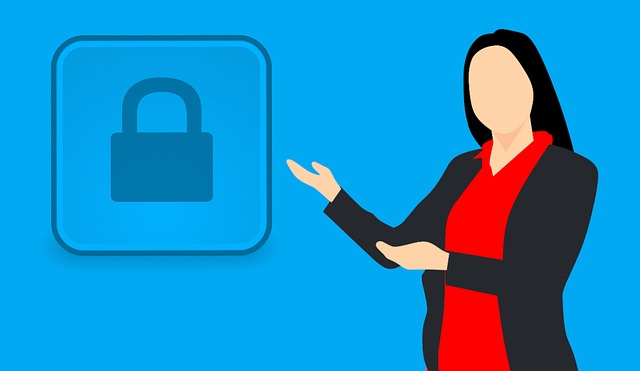VIP protection for diplomats is a crucial aspect of diplomacy, ensuring high-ranking officials' safety and security during missions by safeguarding physical well-being, sensitive information, and communications. With confidentiality and privacy as vital cornerstones of trust in diplomatic interactions, advanced cybersecurity protocols, secure travel arrangements, and robust security details are employed to protect diplomatic personnel and the integrity of their exchanges. Global diplomatic missions prioritize data privacy through multi-layered approaches, including secure communication channels, device security measures, and strict protocols for handling confidential materials. As technology plays a larger role in diplomacy, international organizations and legal frameworks adapt with stricter guidelines to balance transparency with diplomats' privacy rights.
In the intricate world of diplomacy, where sensitive negotiations and confidential discussions shape global affairs, ensuring confidentiality and privacy is paramount. This article delves into the critical aspect of VIP protection for diplomats, exploring comprehensive strategies to safeguard diplomatic interactions. From understanding the nuances of VIP security to implementing robust data privacy measures during travel and meetings, we unravel essential practices. Global perspectives on protecting diplomats’ privacy rights further enrich this vital discussion, emphasizing the interconnectedness of secure diplomacy and international relations.
Understanding VIP Protection in Diplomacy: A Brief Overview
In diplomacy, VIP protection for diplomats is a critical aspect that ensures the safety and security of high-ranking officials during their international missions. This involves comprehensive strategies to safeguard not just the diplomat’s physical well-being but also their sensitive information and communications. VIP protection in diplomacy encompasses various measures, from secure travel arrangements and robust security details to advanced cybersecurity protocols for protecting digital data.
Diplomats often handle confidential information that can have significant geopolitical implications. As such, their personal safety is intertwined with maintaining the integrity of these sensitive matters. By implementing stringent VIP protection protocols, diplomatic missions enhance the resilience of their personnel against potential threats, ensuring they can effectively navigate complex international scenarios while preserving confidentiality and privacy at all times.
The Significance of Confidentiality and Privacy in Diplomatic Relations
In diplomatic interactions, confidentiality and privacy serve as cornerstones of trust and effective communication. These principles are paramount because they protect sensitive information exchanged between nations, which can range from trade negotiations to international agreements. Maintaining secrecy ensures that discussions remain untainted by external influences, fostering an environment conducive to frank and open dialogue.
Moreover, VIP protection for diplomats is a direct extension of these privacy considerations. High-level diplomatic personnel often engage in high-stakes conversations with counterparts from other countries. Safeguarding their privacy and confidentiality is not just about securing documents; it involves ensuring the safety and security of individuals involved in these exchanges. This comprehensive approach to protection underscores the value placed on preserving the integrity of diplomatic relations.
Security Measures for Safeguarding Sensitive Information
Diplomatic missions around the globe handle sensitive information, from state secrets to personal details of world leaders. Ensuring confidentiality and privacy in all interactions is paramount for maintaining trust and preventing unauthorized access. This involves robust security measures that include encrypted communications channels, secure data storage facilities, and advanced cybersecurity protocols.
VIP protection for diplomats plays a crucial role in this equation. Physical security at diplomatic residences and during official travels must be top-notch, employing state-of-the-art surveillance systems, access control mechanisms, and trained security personnel. These measures safeguard not just the individuals involved but also the integrity of information they carry, ensuring that every interaction remains confidential and private.
Best Practices for Maintaining Data Privacy During Travel and Meetings
When diplomats are traveling or meeting, ensuring data privacy is paramount. One of the best practices involves employing robust security measures such as encrypted communication channels and secure data storage devices. Diplomats should always use trusted and verified networks to transmit sensitive information, avoiding public Wi-Fi hotspots that could compromise data security. Additionally, personal devices used for official business must be secured with strong passwords, biometric authentication, or other advanced access controls to prevent unauthorized access.
VIP protection for diplomats extends beyond their physical safety. It includes strict protocol for handling and sharing confidential materials. Diplomats should never leave sensitive documents unattended or in unsecured locations. Secure briefcases, locked folders, and password-protected digital documents can help maintain the integrity of information exchanged during travel and meetings. Regular training on data privacy best practices is crucial to ensure diplomats are equipped to navigate potential risks and protect critical information.
Global Perspectives on Protecting Diplomats' Privacy Rights
In today’s interconnected global landscape, ensuring confidentiality and privacy in diplomatic interactions is more critical than ever. While nations uphold the principle of diplomatic immunity, protecting diplomats’ private lives and communications has become a complex issue. Globally, there’s a growing recognition that VIP protection for diplomats extends beyond physical safety to include their digital privacy. This shift is driven by the increasing reliance on technology in international relations, where sensitive discussions often take place over secure but potentially vulnerable digital channels.
International organizations and legal frameworks are evolving to address these challenges. Strict guidelines and protocols are being implemented to safeguard diplomatic communications from unauthorized access or interception. These measures aim to strike a delicate balance between maintaining transparency in international affairs and preserving the privacy rights of diplomats, ensuring they can conduct their duties without fear of personal information exposure.
In ensuring the smooth functioning of diplomatic relations, maintaining confidentiality and privacy is paramount. As discussed, VIP protection for diplomats involves a multifaceted approach, from robust security measures to best practices for data privacy. Understanding the significance of these aspects, as highlighted in this article, underscores the need for continuous improvement and adaptation to evolving global standards. By implementing comprehensive strategies that safeguard sensitive information, diplomatic interactions can foster trust, maintain secrecy, and protect the privacy rights of diplomats on a global scale.
